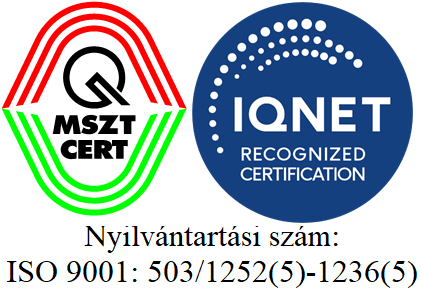Austrian-Hungarian bilateral meeting: intensive discussion about questions related to the new nuclear units
2015.10.16
On 12-13th October, 2015 the headquarters of the Hungarian Atomic Energy Authority gave place to the Austrian-Hungarian bilateral meeting. During the meeting – assisted by almost 40 experts – the parties mutually informed each other about the main changes of the last one year, the challanges ahead, results and developments achieved. Special interest was laid by the Austrian delegation on the operating cycle extension at Paks NPP, the state of play of the new nuclear units, emergency preparedness, radioactive waste management and on the results of the IRRS Mission conducted in May, 2015.
Led by Mr. Anton Kozusnik, director of
the Federal Ministry for Europe, Integration and Foreign Affairs the Austrian
delegation composed of representatives of the local governments as well
as high ranking officers of the Ministry for Agriculture, Forestry, Environment
and Water Management, the Ministry of Science, Research and Economy, Federal
Ministry of Health and Federal Ministry of the Interior.
Opening the meeting, Mr. Gyula Fichtinger
stated: the bilateral talks give a good opportunity for both delegations
to gain detailed information on using of atomic energy ensuring transparency.
The director general expressed his hope that experts would give adequate
answers to questions posed by either party related to the topics.
During the meeting the parties mutually
informed each other about the events of the last one-year period in the
area of peaceful use of atomic energy.
Árpád Vincze and Gábor Petőfi, heads
of departments of the HAEA gave a presentation about the legislative changes
relating to the work of the HAEA, the structural changes and the human
resource development of the HAEA: the authority is set to meet the challenges
arising in connection with the construction of the new tasks by setting
up an effective organisational structure. The lifetime extension, the new
nuclear units, the National Action Plan (on nuclear safety) of the Paks
NPP and the new tasks delegated to the Authority need special attention
and efforts from the regulatory body.
The Austrian delegation was interested
in the operating cycle extension at Paks NPP. Mr. Mihály Czibula, the project
manager of Paks NPP gave a presentation on this topic, in which he emphasized:
although it is a new method, the introduction of the operating cycle extension
does not affect adversely the safety of the NPP.
Special attention was raised by the new
nuclear units: Mr. Miklós Horváth, director of corporate affairs at the
MVM Paks2, gave a presentation on the state of play of the new nuclear
units. The questions of the Austrian delegation were about environmental
impacts, about the relation between the environmental licensing procedure
and site licensing, and about the possible parallel operation of the old
and new units.
The Austrian delegation informed the Hungarian
side about the relevant legislative changes, the structural changes of
emergency preparedness organisations and the implemented safety improvements
in the TRIGA Mark II Research Reactor.
The head of the Austrian Delegation highly appreciated the well-structured, precise and exhaustive agenda of the bilateral meeting and that it covered all the themes the Austrian side was interested in. Finally he expressed their gratitude for the openness of the Hungarian delegation.



 ©HAEA - All rights reserved
©HAEA - All rights reserved